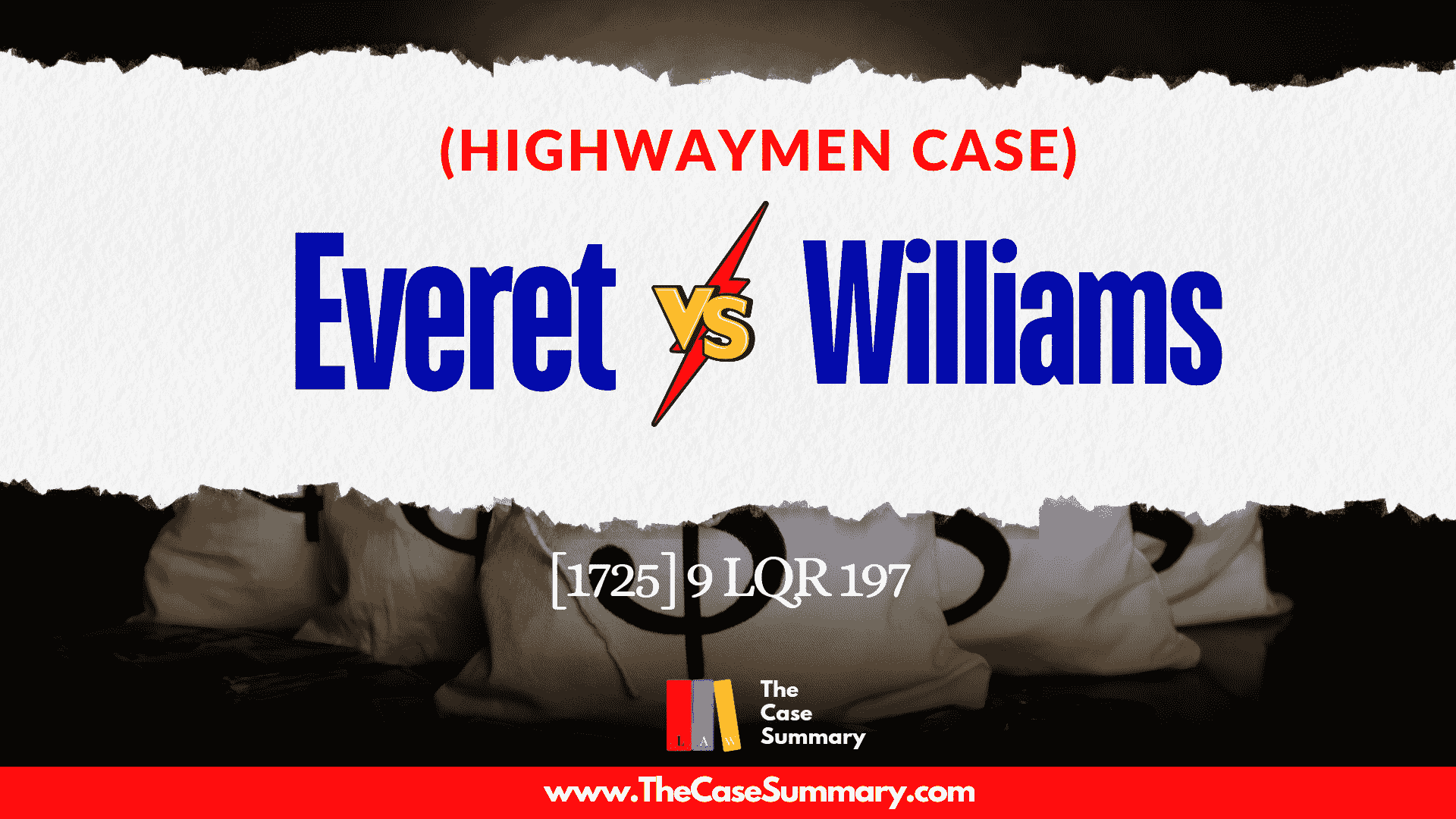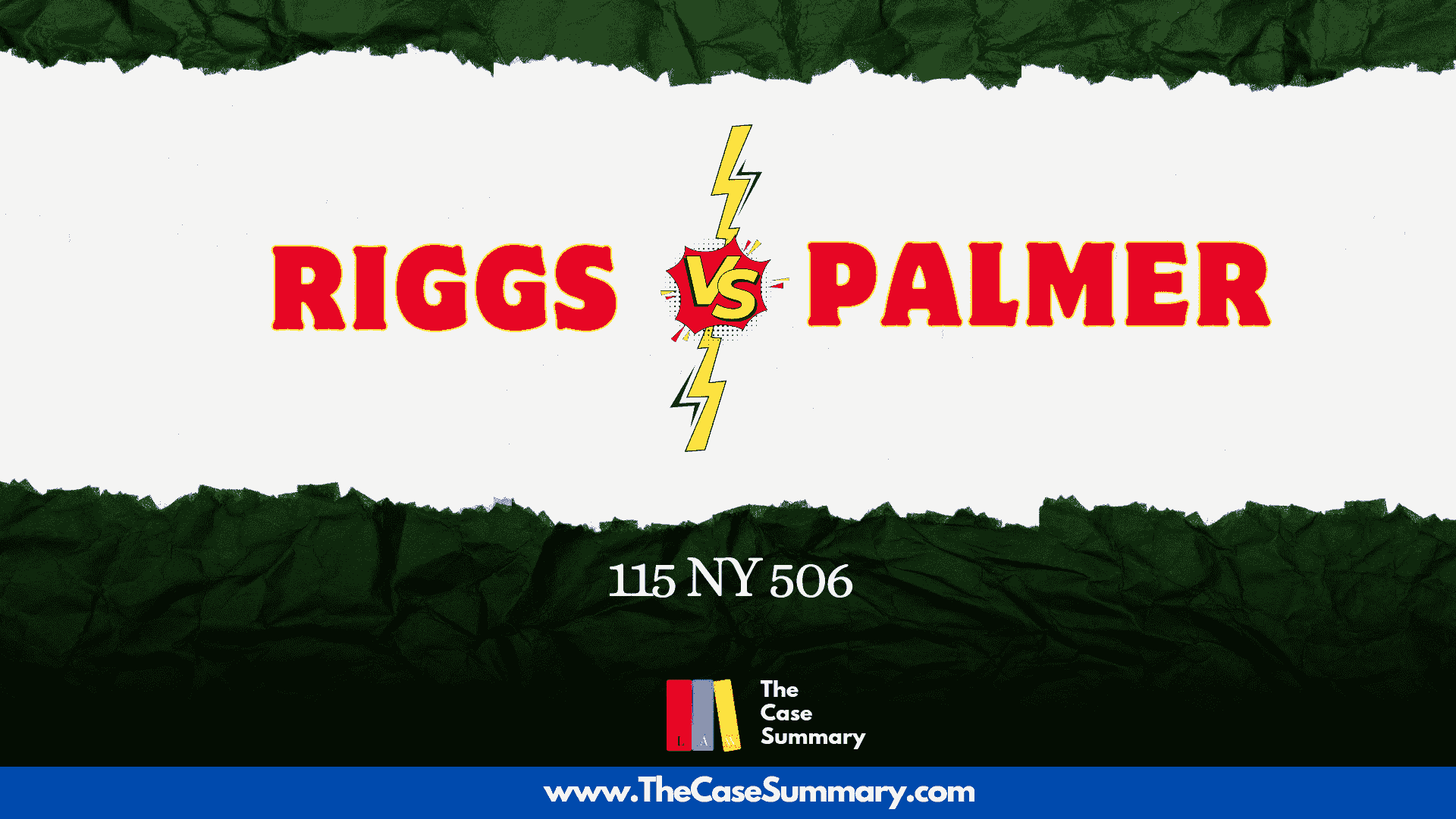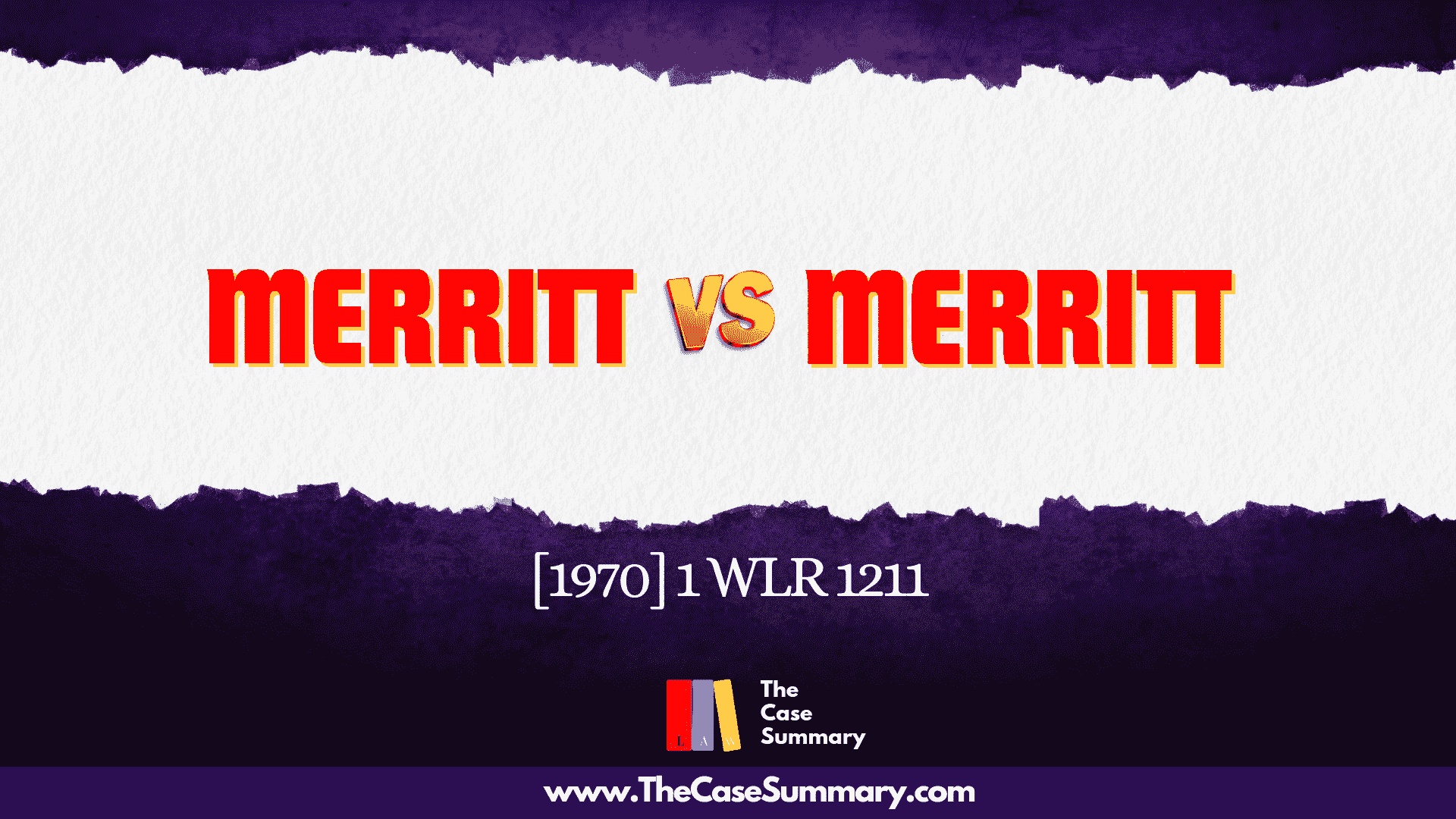Everet vs Williams
(Highwaymen Case)
Reference : [1725] 9 LQR 197
Jurisdiction : England
Plaintiff : John Everet
Defendant : Joseph Williams
Facts :
John Everet and Joseph Williams both were highwaymen. They entered into an oral agreement to split the proceeds from their robberies. They operated in areas such as Hounslow Heath, Bagshot, Salisbury, Hampstead, and others. After selling the stolen goods, a dispute arose between them. Everet believed that Williams had taken more than his fair share of the profits from their robberies. Therefore, Everet decided to take this matter to court for the alleged balance due from their “partnership” even though the activity was illegal. He hired attorneys and solicitors to file a lawsuit against Williams, seeking “discovery, an account, and general relief” for the “profits” generated from their so-called “partnership.”
Issues :
1. Was Williams entitled to a discovery, an account, and general relief for the profits from their partnership?
2. Could the court recognize and enforce an agreement regarding an illegal activity (highway robbery) between two individuals?
Argument :
The plaintiff hired William Wreathock and William White to represent him. Wreathock and White, in turn, hired legal counsel, a barrister named Jonathan Collins, who prepared an official complaint and presented the highwaymen’s case to the Court of Exchequer. On 30 October 1725, lawyers acting on behalf of John Everet presented a Bill in Equity at the Court of Exchequer seeking resolution of the dispute. The bill demanded that Williams account for the value of goods and pay back any money owed to the plaintiff. In explaining why the conflict was brought to court and obviously ignorant of the absurdity of his actions.
Barrister Jonathan Collins declared :
❝My client, John Everet, is relievable only in a Court of Equity before Your Honours, where just discoveries are made, frauds detected, and just accounts settled.❞
Decisions :
The Court of Exchequer was unimpressed by the lawsuit between highwaymen over dividing their stolen goods. On 13 November 1725, the Court dismissed the case stating it to be “scandalous and impertinent” as it sought to legitimize illegal activities. The Court issued a warrant for the arrest of the two solicitors who brought the suit forth. Both solicitors William Wreathock and William White were arrested and brought before the court on 06 December 1725. Both of them were fined £50 each. Also, on the same day, Jonathan Collins who signed the original bill bringing the suit to court was ordered to pay all court costs.
Relevant Maxim :
He Who Comes to Equity Must Come With Clean Hands : This means that the person who seeks relief must not engage in illegal activity related to the same matter. If their behaviour is found unethical, the Court will dismiss the relief requested by the person. The Highwaymen case is the most accurate example of this maxim.
Author :
1. Nusiba Hasan Ohee
Note : The Case Summary is a platform by the law students, for the law students. We aim to summarize the facts and decisions of various important cases in both Bangla and English with utmost caution. However, this platform is in no way a replacement for going through the complete judgements by the law students and we discourage any learner from relying on case summaries alone. Thank you



